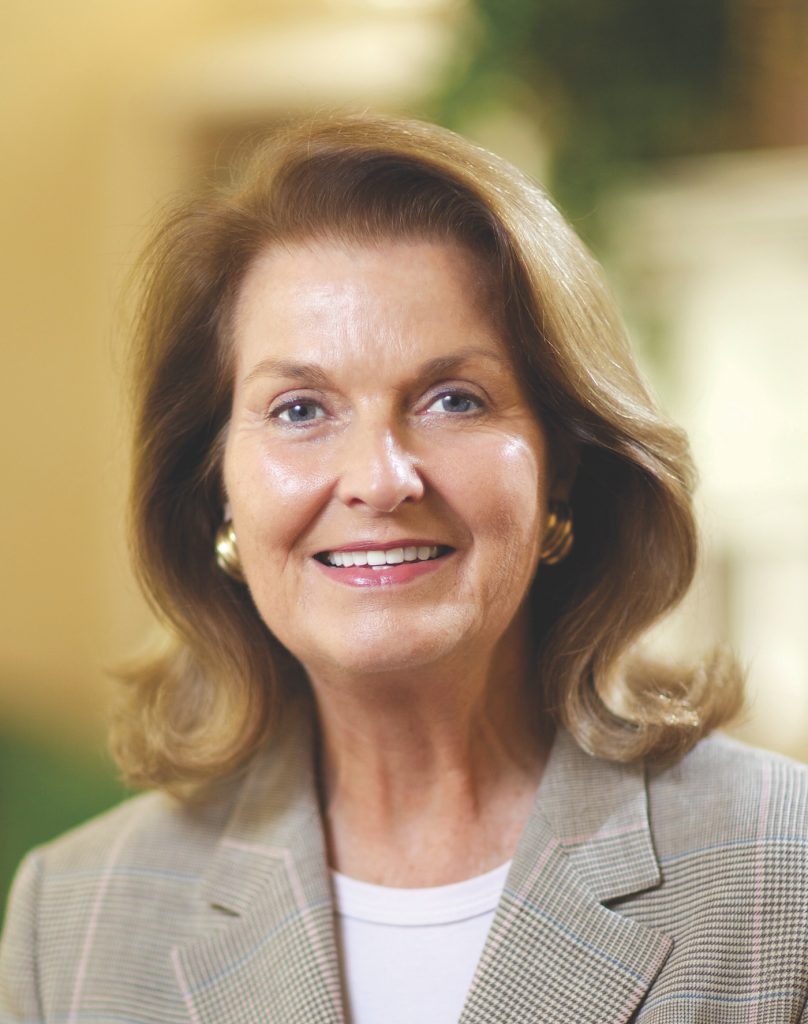Using ‘Whatever Leverage’ She Has to Help Vulnerable Youth

After 40 years of leading organizations dedicated to stopping domestic violence and supporting imperiled youth, JaMel Perkins knows a thing or two about the field and her adopted city of San Francisco. Among other positions, she had been president of the board of the San Francisco Education Fund, which supports at-risk students, and Partners Ending Domestic Violence.
But Perkins was shocked to discover that one part of the youth health puzzle had been mostly invisible to her – sex trafficking of youth in her own backyard.
“When I thought of sex trafficking, I just assumed it was an international issue, not a domestic one,” Perkins says. “But the truth is that the majority of youth affected by sex trafficking in the United States are American-born. When I first heard this, it was a real ‘aha’ moment for me.”
To combat this threat, in 2016 Perkins co-founded Freedom Forward, an organization dedicated to supporting the hundreds of Bay Area youth involved in sex trafficking and the thousands more at risk of trafficking and abuse. The San Francisco-based nonprofit supports the work of multiple local agencies, with the goal of attacking the root problems of sex trafficking.
Among their signature successes is co-authoring a $9.3 million state contract for the city of San Francisco. Coming into city coffers just before the pandemic, the grant brings together several organizations and agencies to provide coordinated, comprehensive support to youth who have experienced or are at risk of commercial sexual exploitation, especially those most vulnerable due to homelessness and those involved in the child welfare or juvenile justice systems.
“Any young person who is homeless or experiencing exploitation in our streets is one too many,” San Francisco Mayor London Breed announced, in response to the grant and the problem the funds are meant to help solve. “We must do better.”
Freedom Forward’s theory of change, and the way Perkins has approached the art of collaboration, offers lessons for philanthropic leaders interested in making a difference.
Listening, Especially to Youth
The first lesson for philanthropic leaders is simply the power of listening, and looking for the potential for insight and empathy bubbling beneath it.
When Perkins came to San Francisco from Chicago decades ago, she knew little about domestic violence. For her, as for many, the problem was mostly invisible. But a newspaper article about domestic violence training caught her eye, and after listening to the stories of women in her new city, she rolled up her sleeves and got to work.
It was years into this commitment that Perkins had a conversation with Kamala Harris, who was then California’s attorney general, and with whom Perkins served on a nonprofit board.
“When she told me the numbers and how much of the problem took place here, I couldn’t believe it,” Perkins says.
This conversation sent her on a long listening tour, which included colleagues and experts in law enforcement, social service agencies, and politics, until she came to scholar and activist Alia Whitney-Johnson, then at McKinsey & Co., who had previously founded an organization that works with survivors of sexual abuse. They spent an afternoon trading stories and ideas, and soon after, the two of them – along with Natasha Dolby who was also doing research in the field – founded Freedom Forward a year later, with Whitney-Johnson as the executive director. That early collaboration among the three co-founders became embedded in the DNA of the organization.
As the organization took shape, the focus on listening deepened as the co-founders committed to developing systems that were responsive to the young people whom Freedom Forward was dedicating to serve.
Among their first initiatives was the Forward Fellows, a yearlong, healing-centered leadership development program for youth impacted directly or indirectly by trafficking to support them in influencing policy and shifting the narratives that most affected them. They were selected to the Youth Advisory Board for the San Francisco Mayor’s Task Force on Anti-Human Trafficking, where they would offer ideas and guidance on helping other youth and received recognition from Sen. Dianne Feinstein for their work.
As Freedom Forward took shape, the founders heard stories of youth working hard to navigate services in a complex landscape. Survivors of trafficking wanted a place that was youth-friendly to meet their needs. If they’d had such a place, maybe they wouldn’t have been trafficked. Exploiters find ways to alienate youth from systems of support. Youth emphasized the importance of making it easier to access resources and investing in trust-based relationships. True to their values, Freedom Forward listened. They hired a cohort of youth for 15 weeks to help design and launch a drop-in center, known as the HYPE Center (Helping Young People Elevate), that provides services, resources, and opportunities to young people.
The design goal for both projects, says Perkins, was “to amplify the voices of youth who are often ignored” in the policies meant to help them.
Bring the Right People to the Table
A sign that Freedom Forward was approaching these problems with a high degree of inspired listening was its partnership with IDEO.org, the social service spinoff of the legendary design thinking firm IDEO. After IDEO put together a package of potential design solutions for the new organization, says Perkins, “They decided not to charge us a dime. Instead, their creative director, Patrice Martin, joined our advisory board.”
Indeed, bringing the right people to the table is another central lesson for Perkins. The first critical element of this kind of collaboration, especially in the social service sector, is including the voices of those directly impacted by the issues. The other element includes the activation of networks that can make practical, actionable collaboration possible.
To address the root problems of youth abuse and sex trafficking, “we had to get people to collaborate instead of working in silos,” says Perkins, who pushed hard with “whatever leverage I had in the mayor’s and district attorney’s office, with law enforcement and with city agencies.” They also knew that in tackling a system of exploitation, they would confront deeply embedded issues like sexism, patriarchy, racism, oppression, and larger forces that are part of the capitalistic system in which our society operates. While it was important for them to map these forces and understand their interplay in impacting vulnerable, often poor, young people of color, they knew a small organization couldn’t begin to make a dent in these centuries-old issues. They used a “systems-thinking” model that allowed them to look into the levers that they could influence rather than focusing on issues that seemed unsurmountable for a small team with a limited budget. That translated into questions like, if young people who are coming from the foster care system are disproportionally represented in survivor numbers, what can we do where those two systems meet to reduce that youth’s vulnerability and improve their chances to thrive?
All this led to, among other things, Perkins participating in the San Francisco Mayor’s Task Force on Anti-Human Trafficking and the San Francisco Collaboration Against Human Trafficking.
This collaboration has made itself felt in the staffing of the HYPE Center, which didn’t attempt to duplicate the core competencies of legacy organizations like Bay Area Legal Aid and Huckleberry Youth Programs, but invited them in as a partner so that youth could access a variety of services under one roof. The use of the HYPE Center, in Potrero Hill, has been donated to Freedom Forward by Natasha Dolby’s family, who has also been very supportive of the group’s efforts from the get-go.
Replication and Scaling Up
Another tenet of Freedom Forward is replicability. Why move the needle on a seemingly intractable problem, says Perkins, “without being able to share best practices” with other cities, regions, or even countries. An explicit goal of California’s $9.3 million grant is statewide replication. The organization has a deep commitment to openly sharing lessons learned to enable other organizations to build on their work.
The potential of scaling is at the heart of another Freedom Forward initiative called Launchpads, an Airbnb-like platform that will connect individuals who have extra space in their homes with youth in extended foster care who need housing. In California, one in four young people exiting foster care as young adults end up homeless within two years, and Launchpads is designed to expand the network of potential housing for youth at a moment of great uncertainty in their lives – a time when they might otherwise fall into sex trafficking.
Perkins has often noted how proud she is of her son Alec, who was previously a teacher in San Francisco’s Bayview-Hunters Point neighborhood, as well as the former board chair of Tipping Point, a collaboration-based partnership to invest money in at-risk communities.
Helping create an inter-generational philanthropic conversation “is an important part of our legacy, for both Tom and I,” Perkins says, referring to her husband.
Despite all the work behind her, Perkins shows no sign of slowing down.
“I have resources, I have time,” she says. “I want to meet the right people and use what I know to help someone else.”
